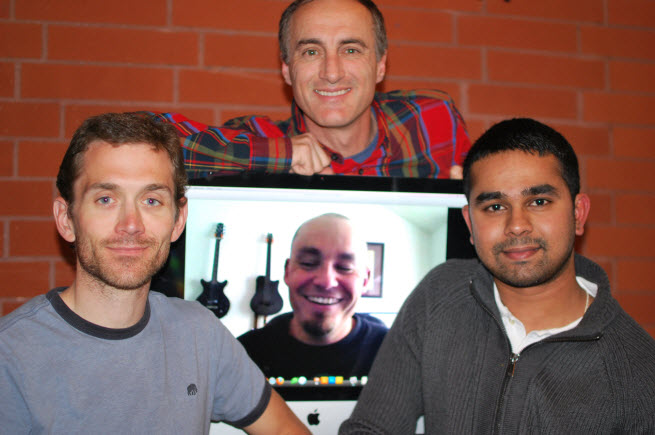
Goplay is launching a web portal for social games in the hopes of luring disaffected publishers away from Facebook.
With Goplay, developers can make their games available on a portal that reaches new audiences beyond social networks, and lower the cost of doing business. Facebook takes a 30 percent cut on virtual good purchases made with its Facebook Credits virtual currency. Goplay takes only a 10 percent cut.
 It’s kind of a long shot, considering Goplay has only four people. It won’t be easy to get developers to move over unless Goplay can demonstrate some serious traction or a large number of users. Still, Goplay seems to have a can-do attitude and its portal is up and running already.
It’s kind of a long shot, considering Goplay has only four people. It won’t be easy to get developers to move over unless Goplay can demonstrate some serious traction or a large number of users. Still, Goplay seems to have a can-do attitude and its portal is up and running already.
Goplay has made it easy for game developers to move their titles because it has mimicked Facebook’s application programming interface. That means that games designed to run on Facebook will automatically be able to run on Goplay with minimal tweaking. The company plans to promote the site on TV by purchasing infomercial time slots at low prices.
The logic of moving off Facebook to cheaper and more game-focused sites is undeniable. Users of social games typically have hundreds of connected friends, but gamers can’t spam those friends with game requests without offending non-gamers. Users who want to level up are forced to pursue alternatives such as visiting fan pages or adding random game friends. That helps them play the games, but those “friends” usually aren’t real friends, and it’s kind of creepy when they start making comments on your private family-vacation photos.
That’s why Goplay created a game-focused destination, said George Zaloom chief executive of Goplay, which was founded in in 2011. Facebook as a social network “continues to frustrate users and alienate developers,” Zaloom said.
 “Our costs are way below the norm for a typical user acquired through Facebook, that combined with our highly advantageous revenue share of 90 percent make integrating with Goplay “a no brainer” for our partners,” Zaloom said. “Because these are localized spots buys, the company is able to track the effectiveness of media flights against its web analytics – thus enabling it to fine tune its campaigns.”
“Our costs are way below the norm for a typical user acquired through Facebook, that combined with our highly advantageous revenue share of 90 percent make integrating with Goplay “a no brainer” for our partners,” Zaloom said. “Because these are localized spots buys, the company is able to track the effectiveness of media flights against its web analytics – thus enabling it to fine tune its campaigns.”
It makes sense in other ways. Game discovery is a problem now that Facebook has shut down spam-like game messages. And the cost of user acquisition has skyrocketed on Facebook, putting advertising on the social network out of reach for many independent game developers. By turning to Goplay, where the audience is 100 percent game focused, it’s easier and cheaper to reach new gamers.
With thousands of apps to compete with on Facebook, developers find that Facebook is too crowded. Goplay is more like a mashup of massively multiplayer online and social games. Active users of a game can play together. Goplay automatically broadcasts notifications until someone in the community answers them. A live Goplay feed runs alongside the game at all times. Users can log in via Facebook Connect or create their own unique Goplay identification.
Before starting Goplay, Zaloom founded GiantHello.com, a popular social network for tweens. Before that he was a senior executive with DreamWorks Animation and Walden Media. He also produced the motion picture Encino Man and numerous movies of the week for ABC’s Wonderful World of Disney. Tony Restuccia, chief technology officer, was previously a senior architect at Myspace working on the home page.
Goplay has raised $1.5 million to date from a number of Direct Response (infomercial) pioneers led by Andrew Tobias, investor of the Tobi Steamer and Patch Perfect. The site is launching now, and game developers such as 50 Cubes, maker of MallWorld, are making their games available on Goplay. Goplay has a long way to go to catch up with Google+ and Facebook. But you never know, it might influence the big giants.


